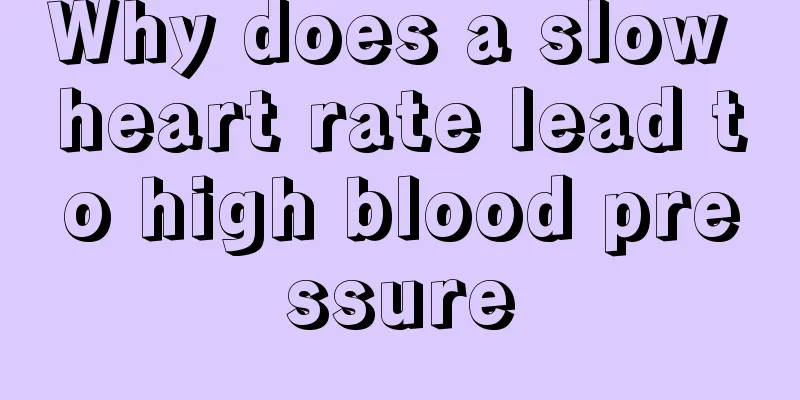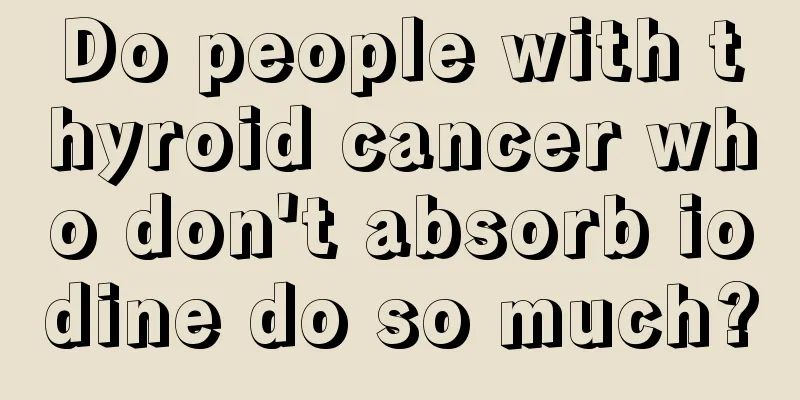Why does a slow heart rate lead to high blood pressure

|
If you have a bad heart, you must pay more attention to rest and avoid strenuous exercise. Otherwise, not only will your heart rate increase, but it will also cause high blood pressure. Whether it is high blood pressure or heart disease, it will endanger people's physical health and even threaten people's lives when it is serious. Therefore, we must develop good living habits and try to stay away from these diseases. We should look at this issue in this way. First of all, under normal circumstances, heart rate and blood pressure are two different physiological indicators and have no direct connection. Only under special circumstances will the two affect each other. There are three main factors that affect blood pressure: the output of the heart each time it contracts, the total volume of blood, and the resistance of blood vessels to blood flow, which has nothing to do with heart rate. Under normal circumstances, a person's heart rate is between 60 and 100 beats per minute. If the heart rhythm is normal within this range, it will not affect blood pressure, let alone cause hypertension. We know that our heart rate will increase during daily exercise so that the heart can pump more blood to meet the needs of the body, but at the same time, the blood flow rate will also increase, so the blood pressure will not change much. However, when suffering from certain diseases, such as arteriosclerosis, the increased heart rate will cause the blood pressure to rise, and the increase in diastolic blood pressure is more obvious. But if it is the other way around, that is, for patients with hypertension, there are requirements for the speed of the heart rate, because the speed of the heart rate of patients with hypertension is an influencing factor for the occurrence of cardiovascular and cerebrovascular diseases. Studies have shown that: For patients with hypertension whose heart rate is greater than 84 beats/minute at rest, the risk of coronary heart disease is 1 times higher than that of patients with a heart rate of less than 65 beats/minute; for patients with hypertension whose heart rate is greater than 79 beats/minute, the risk of death is 89% higher than that of patients with a heart rate of less than 79 beats/minute. Therefore, patients with hypertension should pay attention to their heart rate, especially when they have coronary heart disease: when the heart rate is greater than 70 beats/minute in a resting state, measures should be taken to intervene and treat the disease, and the treatment goal is 55-60 beats/minute. |
<<: Can cigarettes be stored in the refrigerator?
>>: The heart is fine, but the heart rate is fast, what's going on?
Recommend
What should patients with testicular cancer eat in the late stage
People have a desire to survive, but often we can...
Can I get an oxytocin injection at 41 weeks?
As we all know, a woman's pregnancy lasts ten...
What is the prognosis of undifferentiated nasopharyngeal carcinoma and how to treat it
Nasopharyngeal carcinoma is a very common cancer ...
Influenza virus type A positive
Influenza virus, also known as flu virus, is gene...
How long does chemotherapy and radiotherapy last for breast cancer
How long does chemotherapy for breast cancer last...
Is lupus erythematosus hereditary? Why?
Lupus erythematosus is an autoimmune disease with...
How to make kiwi fruit mask
How to make kiwi fruit mask? Kiwi is called the q...
The benefits of drinking fresh hawthorn soaked in water
When people use hawthorn to make tea, they usuall...
What is the reason for curly hair
Many people have curly hair, which is often calle...
What are the effects and functions of horse oil ointment
Skin care is an essential thing for us women. If ...
How to dry rose buds
When many people mention roses, they think of the...
How to distinguish liver cancer from liver cysts? Teach you how to correctly distinguish liver cancer from liver cysts
Liver cancer is a malignant tumor located in the ...
What is ovarian tumor
Ovarian tumor refers to a tumor that occurs on th...
The most easily fooled cancer signal
With the development of medical technology, many ...
Breast cancer immunotherapy cost
The key to treating breast cancer is early detect...









